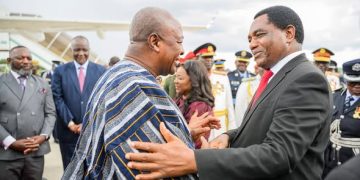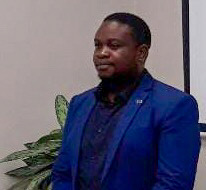By Seyuba Esanju
The Russians were the first to launch an artificial earth satellite into space and made a spacewalk. Writers such as Alexander Pushkin, Fyodor Dostoevsky and Leo Tolstoy are synonymous with classical literature. The country also has great places for tourism, beautiful and smart people.
The country is officially called the Russian Federation. It is a former part of the Union of Soviet Socialist Republics, as Russia was the capital of the Soviet Union also known as USSR. The USSR had the following republics: Russia, Ukraine, Georgia, Belarus, Uzbekistan, Armenia, Azerbaijan, Kazakhstan, Kyrgyzstan, Moldova, Turkmenistan, Tajikistan, Latvia, Lithuania, and Estonia. The Soviet Union was dissolved in 1991 after the collapse of its communist government.
Russia is more than twice the size of the United States and occupies more than 11% of the Earth’s land mass. It is partly in Eastern Europe and partly in Northern Asia; in the north it borders the Arctic Ocean. Russia borders many countries, and the image of Russia is visible in its geography. It is the largest country on earth, rich in natural resources and rich ethics. Russia borders 14 countries: Azerbaijan, Belarus, China, Estonia, Finland, Georgia, Kazakhstan, North Korea, Latvia, Lithuania, Mongolia, Norway, Poland, and Ukraine. It also shares maritime borders with Japan, Sweden, Turkey, and the United States of America.
According to the last census conducted in 2021, the population of Russia was about 143,185,000 million people. The capital city is Moscow, and the currency is the ruble (₽). The population of the country is mainly Russian, the minorities include Tatars and Ukrainians. The office language is Russian, but it has various Turkic and Uralic languages. Russia is a very religious country, its religion is mainly Christianity (mainly Eastern Orthodoxy, also Protestantism) as well as Islam. However, about a third of people are non-religious or atheist.
Russia is a large and complex country that needs to be understood in terms of the complexity of theoretical approaches, geographical directions, and membership in global/regional organizations.
Russia is a great and powerful country, but it’s different from most Western countries. It has a unique culture and people. It is important to note, Russia never took part in the slave trade and respected Africans or black people, some of whom became the pride of Russia. The great-grandfather of the great writer and poet Alexander Sergeyevich Pushkin was born in Ethiopia. He was brought to Russia and become a noble army general.
All Russians know the name of the great-grandfather of A.S. Pushkin, Abram Hannibal, who lived a long and rich life. The son of a noble African prince, at the age of seven came to Moscow and became a favorite of Peter I. While in Russia, he managed to get an excellent image and make a brilliant military career, serving to the rank of general.
The image of Russia in Africa is also formed thanks to historical data, which is known to residents of African countries. While in America the conditions were unbearable for a black person to run a business and just succeed, Nancy Garderner Prince and her husband moved to Russia for greener pastures. According to her, in her book, the Prince described the luxurious atmosphere of Russia and the great “politeness and indulgence” with which she and her husband were met. “There was no prejudice against the color of the skin,” she also notes, “there were all castes and people of all nations, each in his/her place.” In Russia, all people were treated equally, and they did not have any laws for segregation.
While in Russia, Nancy Prince helped children, teaching them to sew, and started a business of making clothes for babies and toddlers, which she sold to the nobility. Active in the local Protestant church, she also helped establish an orphanage in St. Petersburg and distributed Bibles in the royal palace.
In the 60s, the Soviet Union was one of the key players on the African continent, having a say in almost all major geopolitical events on the continent. In fact, it can be said that Soviet interference in the affairs of the continent, especially after the beginning of the decolonization process, played a key role in the formation of the modern geopolitical map of Africa. Later, after the collapse of the USSR, Russian presence in Africa degraded to the status of virtual non-existence.
Russia is one of the greatest and most powerful countries in the world. This can be seen in his military exhibitions and the new policy of maintaining peace in Africa, Syria. It is conducting exercises with South Africa as part of a military agreement to help strengthen the two armies. According to Ambrosetti, Russian peacekeepers and contractors are active in many conflict zones, from the South Caucasus to the Middle East, through North Africa and increasingly sub-Saharan Africa, with far-reaching implications for international security. Russia is also sending peacekeepers to the United Nations to help preserve world peace.
Russia’s international image is linked to its participation in overcoming crises between countries. So, in 2020, there was a conflict between Armenia and Azerbaijan over Nagorno-Karabakh (Artsakh in Armenian). The war ended with Moscow’s mediation with a truce that established the presence of some 2,000 Russian peacekeepers in the Olesya area. Without Russia’s intervention, the war could have escalated, but Russia helped both sides negotiate a cease-fire and reached an agreement.
Russians are a very civilized and developed people, but they have a different ideology and culture compared to Western or African peoples. Therefore, they are perceived as “other”. To understand the uniqueness of Russia and Russians, you need to be in Russia. Here are the lines from the poem of the famous Russian poet: You can’t understand Russia with your mind / Russia cannot be measured in general / It has a special become / You can only believe in Russia. This simply means you can’t really understand Russia and the Russian people unless you live in Russia.
Russians proudly talk about the nature of their “Russian soul” and strive to share a rich culture, traditions, passion for life. Foreigners describe the “Russian soul” as poetic, mystical, sensitive, prone to tears, but not public or ostentatious. Compassionate, submissive, but combined with stubbornness, patience, the ability to survive even in seemingly unbearable circumstances, almost fatalistic. The way Russians talk about the soul is the same way Africans talk about the human soul.
If you hear a Russian talk about his brother or sister, one will think they are a lot in the family, but they mean cousins. Russians like Africans call their cousins as brothers and sisters. This is very similar to the African culture.
The image of Russia and Russians is also linked to the image of the individual. It’s, first of all, Vladimir Putin — he’s seen as a savior because he saved Russia from economic collapse after the collapse of the Soviet Union. In 2002, in President Vladimir Putin’s speech to the Russian people, he said that “Russia needs more ambitious goals,” “We need to make Russia a prosperous and prosperous country in order to live comfortably and safely.” to recreate the Russian image according to the Soviet image and start by making people’s lives safe and comfortable, and then work on the external image of the country.
It is worth noticing that the culture of the Russian people is nostalgic, and Russians love to preserve their culture, take care of historical places, appreciate, and cherish their rich culture. Russians also love live performances in the theater, and since tickets are affordable (prices in cinemas and theaters are comparable), a large selection of options is available to everyone, including opera, symphony concerts, musicals, ballet, drama and so on. Every city has at least one theater. Theatrical culture developed during the Soviet era, when tickets were sold through schools and businesses.
The image of Russia is also formed from images of everyday life. For example, buses and cars. When I first saw the Russian lada cars, I thought they were from the Russian movies of the 70s, but most of them are new, or refurbished. This means that Russians, loving nostalgia, preserve history and their culture.
Russia is a multi-ethnic country, and that also defines its image. To show how many ethnic groups there are in Russia, we look at food. Most of the foods that are considered Russian products or cuisine are not actually Russian. They are from a different ethic and different societies. This is what makes Russian culture so rich.
There are interesting Russian dishes, such as: porridge, pancakes, salad, vinaigrette. Jelly is prepared from a thick meat broth with pieces of meat, the meat is boiled for several hours, and then cooled. It is served cold as a snack.
Russian dishes include cabbage soup, dumplings are a Siberian dish, classic dumplings use minced beef, lamb, and pork, rolled in unfermented dough of wheat, eggs, and water. Widely popular is Olivier, known abroad as “Russian salad”, named after its creator – French chef Lucien Olivier. The famous borsch (борщ) can also be considered a part of Russian cuisine. Thus, the gastric image is a full-fledged component of Russia’s image.
The image of a Russian is an important component of the image of Russia. At the same time, Russians of any nationality (Russian, Buryat, Jew, Chechen, Kalmyk, Belarusian and others) are usually called Russians abroad.
The kinetic component, consisting of the features of human facial expressions, is important for the image of a Russian. When the Russians joined the Americans on the space mission, one photo was outstanding – it’s a photo of Russian astronaut Gagarin, he wasn’t smiling, while others were smiling in the photo. Russians only smile at friends and rarely smile at all, it’s not their culture to smile at every person. Russians are also very straightforward. When they meet or call each other, they rarely waste time on questions like “How are you?” and so on. They get straight to the point. They’re not rude, it’s just their usual way of communicating.
Thus, emphasizes that Russians are considered rude and gloomy by people of Western cultures. However, as the scientists note, such an assessment is mediated by a difference in kinetic norms of behavior – Russians do not seek to demonstrate emotions of acceptance, as, for example, Americans; they are more restrained and sincere.
With issues about racism, Russia doesn’t have racism as people put it. One Russian saying that caught my attention was this « все мире есть тараканы» meaning every part of the world has cockroaches, it means there good people and bad people in all parts of the world. Yes, some people out of lack of knowledge can be racists but not as other media outlets and other people put it. Russians are loving and caring people.
Russians like Africans have the similar manners and respect for elders. In buses for example, elders are given seats regardless of the situation. Entering a building in a head sock or cap/ hat is a sign of disrespect. Also, all coats and jackets (winter jackets) need to be left at the entrance. This is seen in most buildings and houses. Whistling is another example, the Russians believe if one whistles in the house or building it means bad luck will be upon the person and the person will not have money.
All in all, Russia is a large and beautiful place. With a unique culture and a unique way of life. The Russians are also good and friendly people, just that they have a different culture than the west.
Seyuba Esanju/ Melo Media | Zambia’s No.1 Social Media Platform | Copyright © 2022 All Rights Reserved








































True lovey memories just reading this piece.
You eft out black bread (чёрный хлеб)!!
Excellent
Wonderfull article. I enjoyed the read. As an enthusiasts of Russian culture and history, it was refreshing to read the well researched article.